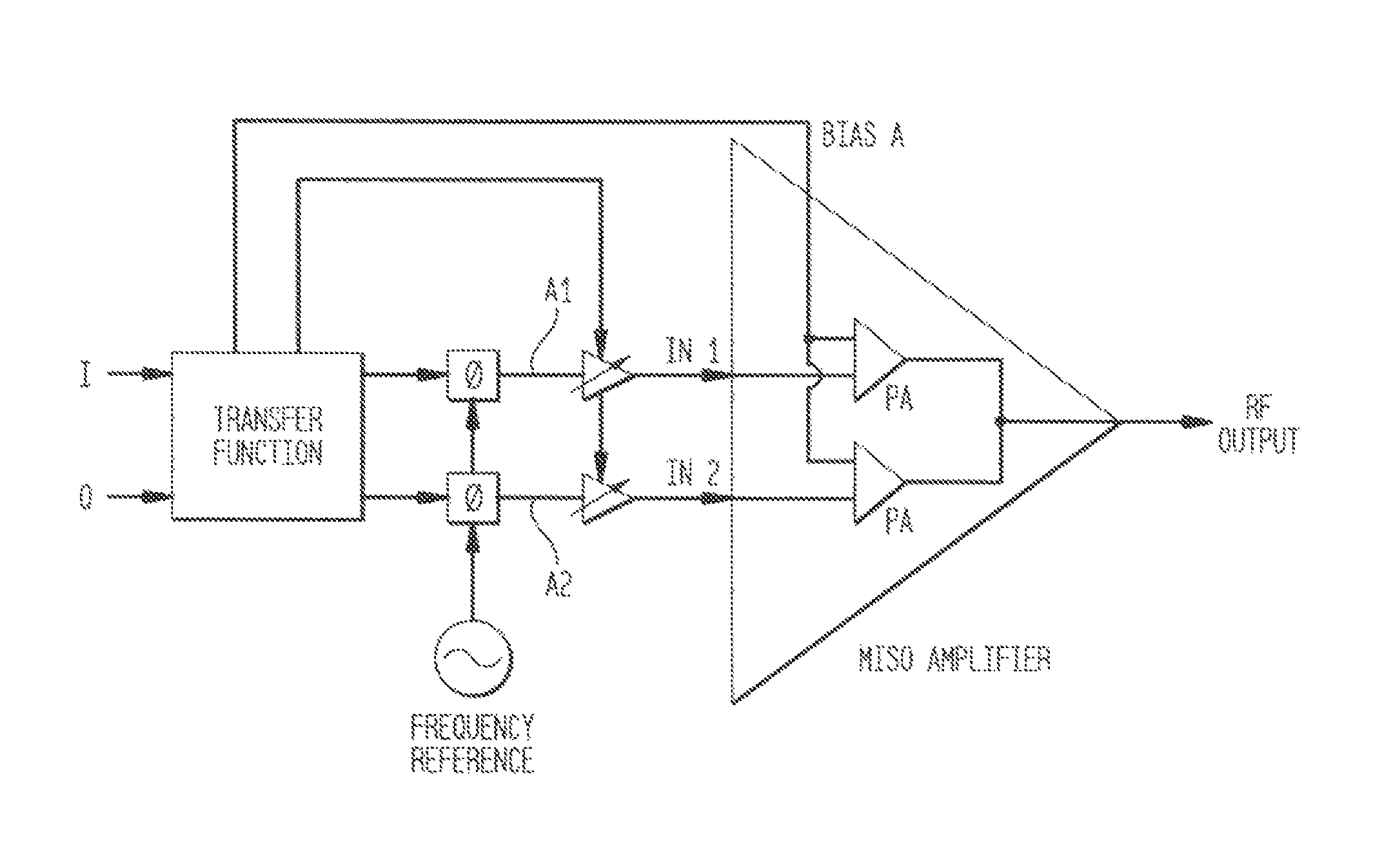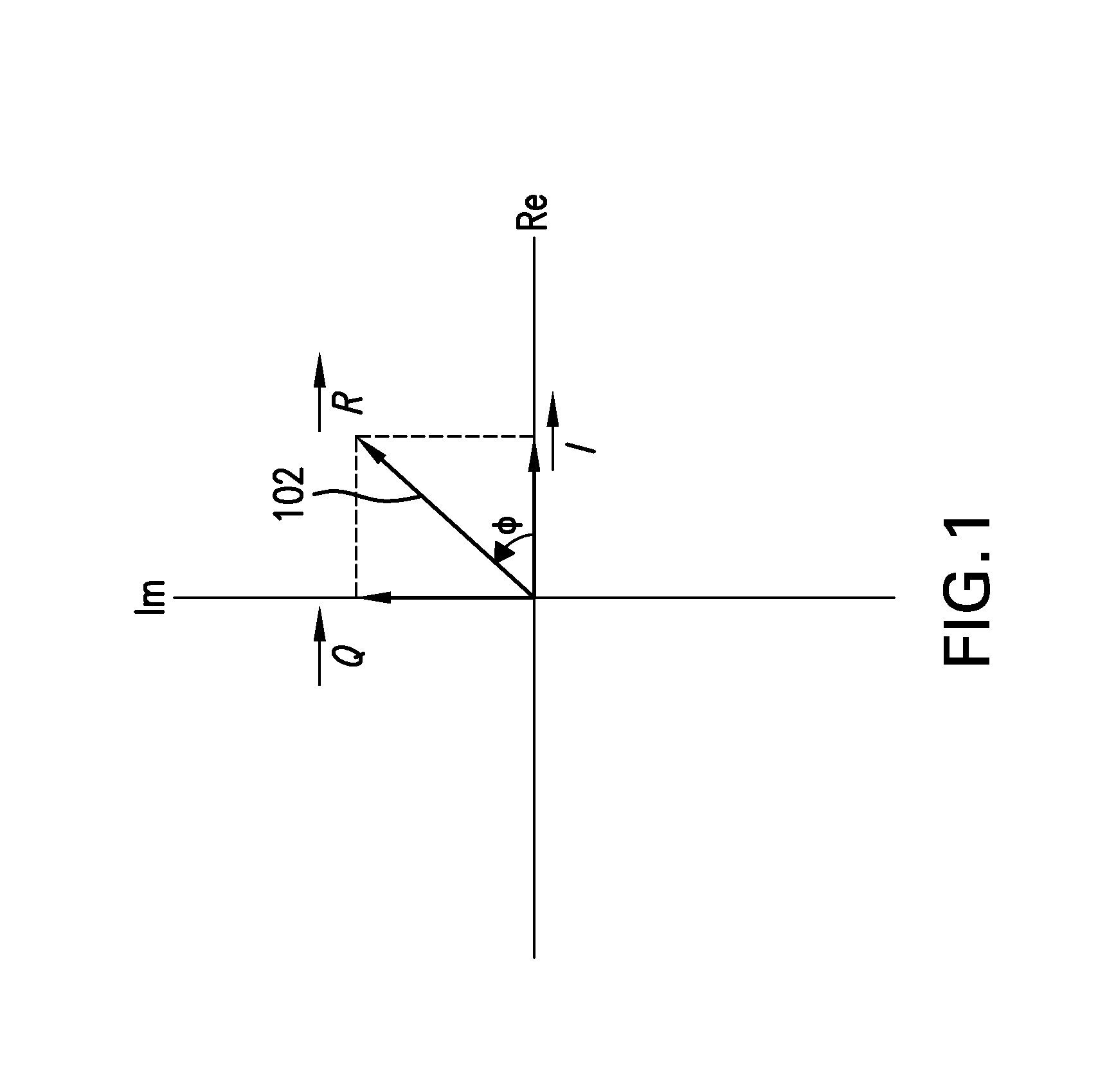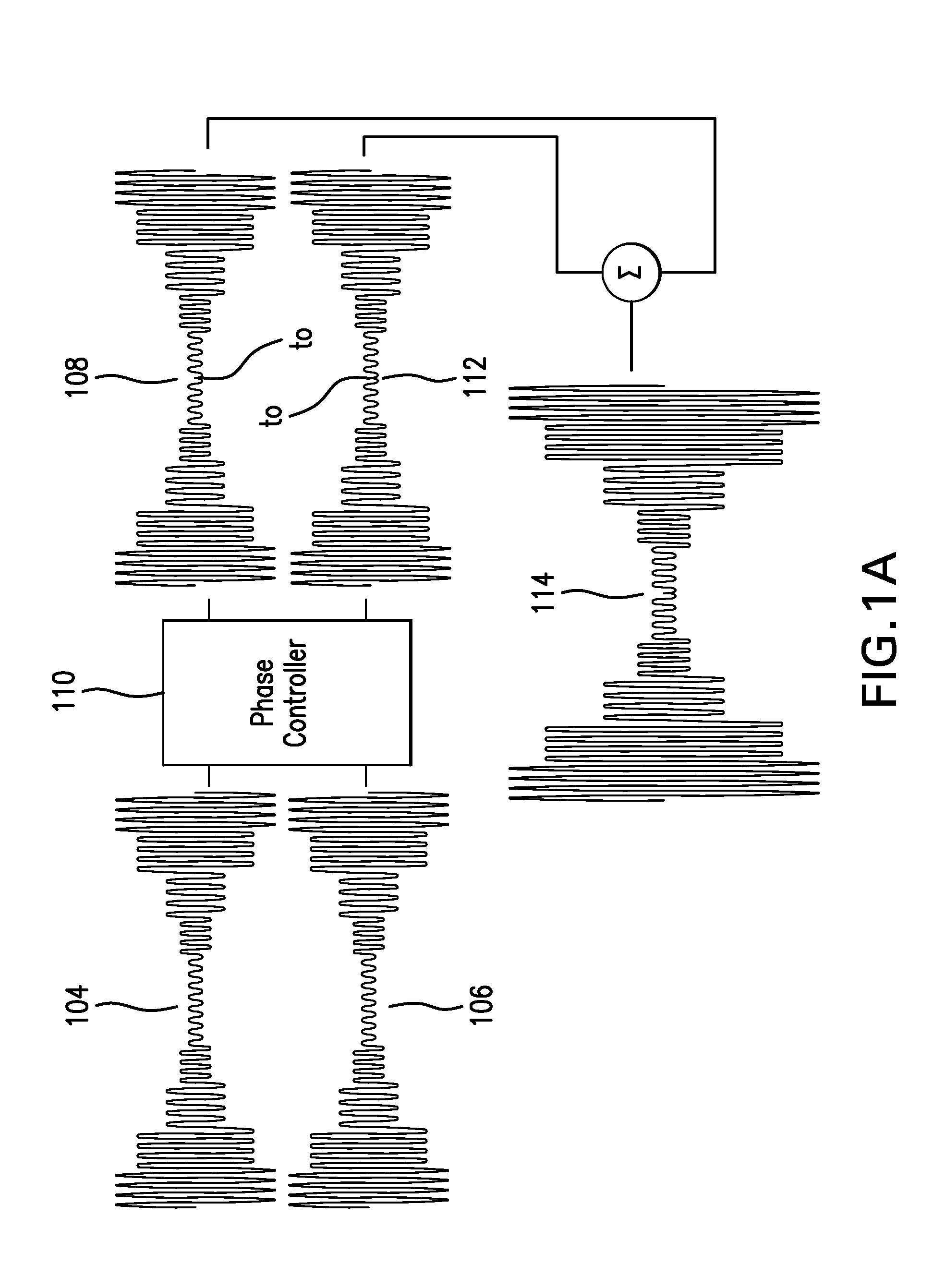Systems and methods of RF power transmission, modulation, and amplification
a technology of rf power transmission and modulation, applied in the direction of amplifier modification to reduce non-linear distortion, gain control, transmission, etc., can solve the problem of linearity and power efficiency, linearity of power amplifiers, and less power efficiency, so as to achieve cost-saving effects
- Summary
- Abstract
- Description
- Claims
- Application Information
AI Technical Summary
Benefits of technology
Problems solved by technology
Method used
Image
Examples
exemplary embodiment 1000
[0311]FIG. 10 is a block diagram that conceptually illustrates an exemplary embodiment 1000 of the CPCP 2-Branch VPA embodiment. An output signal r(t) of desired power level and frequency characteristics is generated from in-phase and quadrature components according to the CPCP 2-Branch VPA embodiment.
[0312]In the example of FIG. 10, a clock signal 1010 represents a reference signal for generating output signal r(t). Clock signal 1010 is of the same frequency as that of desired output signal r(t).
[0313]Referring to FIG. 10, an Iclk_phase signal 1012 and a Qclk_phase signal 1014 represent amplitude analog values that are multiplied by the in-phase and quadrature components of Clk signal 1010 and are calculated from the baseband I and Q signals.
[0314]Still referring to FIG. 10, clock signal 1010 is multiplied with Iclk_phase signal 1012. In parallel, a 90° degrees shifted version of clock signal 1010 is multiplied with Qclk_phase signal 1014. The two multiplied signals are combined to...
exemplary embodiment 1500
[0383]FIG. 15 is a block diagram that conceptually illustrates an exemplary embodiment 1500 of the Direct Cartesian 2-Branch VPA embodiment. An output signal r(t) of desired power level and frequency characteristics is generated from in-phase and quadrature components according to the Direct Cartesian 2-Branch VPA embodiment.
[0384]In the example of FIG. 15, a clock signal 1510 represents a reference signal for generating output signal r(t). Clock signal 1510 is of the same frequency as that of desired output signal r(t).
[0385]Referring to FIG. 15, exemplary embodiment 1500 includes a first branch 1572 and a second branch 1574. The first branch 1572 includes a vector modulator 1520 and a power amplifier (PA) 1550. Similarly, the second branch 1574 includes a vector modulator 1530 and a power amplifier (PA) 1560.
[0386]Still referring to FIG. 15, clock signal 1510 is input, in parallel, into vector modulators 1520 and 1530. In vector modulator 1520, an in-phase version 1522 of clock si...
exemplary embodiment 2000
[0437]FIG. 20 is a block diagram that illustrates an exemplary embodiment 2000 of a transfer function module, such as transfer function modules 710 and 712 of FIG. 7A, implementing the process flowchart 1900. In the example of FIG. 20, transfer function module 2000 receives I and Q data signals 2010 and 2012. In an embodiment, I and Q data signals 2010 and 2012 represent I and Q data components of a baseband signal, such as signals 702 and 704 in FIG. 7A.
[0438]Referring to FIG. 20, in an embodiment, transfer function module 2000 samples I and Q data signals 2010 and 2012 according to a sampling clock 2014. Sampled I and Q data signals are received by components 2020 and 2022, respectively, of transfer function module 2000. Components 2020 and 2022 measure, respectively, the magnitudes of the sampled I and Q data signals. In an embodiment, components 2020 and 2022 are magnitude detectors.
[0439]Components 2020 and 2022 output the measured I and Q magnitude information to components 20...
PUM
 Login to View More
Login to View More Abstract
Description
Claims
Application Information
 Login to View More
Login to View More - R&D
- Intellectual Property
- Life Sciences
- Materials
- Tech Scout
- Unparalleled Data Quality
- Higher Quality Content
- 60% Fewer Hallucinations
Browse by: Latest US Patents, China's latest patents, Technical Efficacy Thesaurus, Application Domain, Technology Topic, Popular Technical Reports.
© 2025 PatSnap. All rights reserved.Legal|Privacy policy|Modern Slavery Act Transparency Statement|Sitemap|About US| Contact US: help@patsnap.com



